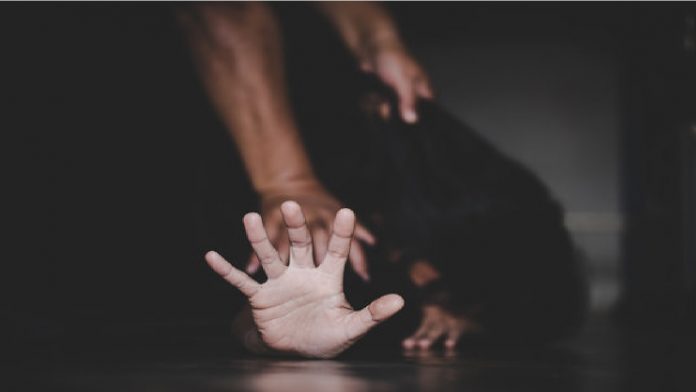By Shermain Bique-Charles
As the debate surrounding marital rape gets louder in the Caribbean, Antigua and Barbuda may be leaning towards changing its legislation to make the act a criminal offence — but there could be some pushback.
The Acting Deputy Executive Director of Gender Affairs, Jamie Saunders, said marital rape is something that should be looked into.
“There may be value in taking a look at the legislation and doing some public consultations and seeing if we should make this reform. It’s something we need to look at and if the climate is there for it, to take the steps to make the necessary amendments [in law],” he said.
Marital rape is the act of sexual intercourse with one’s spouse without their consent. Historically, sexual intercourse within a marriage was regarded as the male’s spousal right with his wife who was perceived as a possession, but today it is largely seen as an act of sexual violence.
Religious leader Bishop Charlesworth Browne believes that the concept of marital rape is a “tricky and thorny territory” and it should be handled delicately.
“While abuse in any form or fashion is unacceptable, one has to be careful that this concept of marital rape does not somehow become a lethal weapon in the hands of feuding couples,” he told Observer.
Furthermore, he said, the sanctity of marriage dictates that the two have become one.
“When something is sacred, we have to be careful how we touch it…this could strangely bring mysterious mortal demise to those who go too far with it. The question, though, is just how far is too far,” Bishop Browne explained.
But for legal minds like attorneys Wendel Robinson and Wayne Marsh, making marital rape a criminal offence could help curtail abuse faced by married women at the hands of their husbands.
Robinson said the notion that a wife should give herself irrevocably to her husband from the inception of the marriage cannot be sound in modern times.
“This whole notion that a husband cannot rape his wife could never hold good in the 21st century. The common law must be able to evolve with what is changing in society and as such I hold the view that a rapist is a rapist and it doesn’t matter whether the marriage is in existence,” Robinson said.
And Marsh, who is a family man, said he would support any government move to start the discussion on making rape within marriage a criminal offence.
“It’s a move that would bring Antigua more in line with 21st century jurisprudence and thinking. It would finally give true meaning to the idea that a woman’s body belongs to her and desires ought to be respected,” he said.
And although the idea is just a thought for now, Marsh said he would hope that parliament moves swiftly to pass the bill whenever it is tabled.
“For too long women’s rights have been ignored by men who have traditionally seen women as their property,” he told Observer yesterday.
But Karene Nathaniel-DeCaires — the Interim President of the Association of Caribbean Social Work Educators and a lecturer in social work at The UWI St Augustine in Trinidad and Tobago — is not convinced that marital rape needs to be specifically criminalised.
“To be honest, I don’t agree with that suggestion. I do think that the sexual offences acts and laws, wherever they are across the region and around the world, need to specifically identify rape within intimate relationships,” she told Observer.
But many people, like the resident who wants to be referred to as Angus Paul, don’t consider marital rape as rape, mainly because he said it’s not something happening in a dark alley, there is no gun-to-the-head situation, and it doesn’t involve a stranger.
“My wife belongs to me. How on earth can I forcefully take what is already mine? I belong to her; it is her wish to do whatever she wants with me. How can I rape my wife in our own bed or on our chair or even on the kitchen table if I want?” Paul said.
He explained that it would be difficult to prove that a husband raped a woman because the spouses would have had consensual sex numerous times.
“So, I had sex with my wife on Monday and Tuesday but on Wednesday she gets moody and decides no. I insisted and succeed, and I can be accused of raping her? This law is against men. A husband should be able to have sex with his wife without fear of prosecution,” he added.
He further argued that if all sexual acts by a man with his wife start to qualify as marital rape, then the judgement as to whether it is marital rape or not rests on the wife, and her testimony alone is enough to convict her husband.
Over the years, several ‘first world’ countries have made marital rape an offence punishable under law, such as the UK, the US, Canada, Australia, Sweden, Norway, Denmark, New Zealand, France, Germany, Ireland, Israel, Belgium, Luxembourg, and the Netherlands.
Marital rape is also criminalised in Ghana, Gambia, Gabon, South Africa, Nepal, Cambodia, Chile, Comoros, Cuba, Albania, Venezuela, Vietnam, Namibia, and Mexico.
The offence can attract severe punishment from the courts in some countries. Nations including Rwanda, the UK, South Korea, and Mongolia have different degrees of punishment, which go as far as life imprisonment.
Pakistan, China, Bangladesh, Myanmar, Sri Lanka and Afghanistan don’t recognise spousal rape as a punishable offence, neither do they categorise marital rape as a crime.
There are also countries that are ambiguous about recognising marital rape under the law, such as Kuwait, Malaysia, and Lebanon.
Poland became the first country to explicitly cite marital rape as a criminal offence in 1932.

